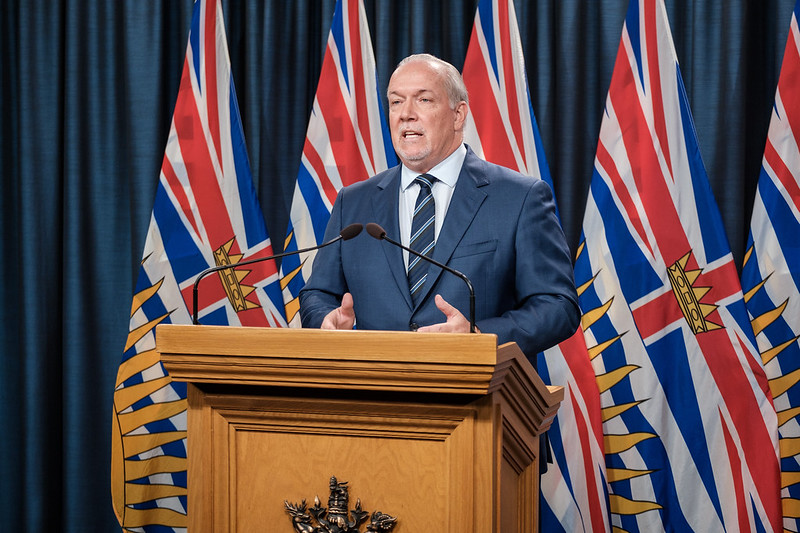The first few doses of the Pfizer COVID-19 vaccine are arriving in B.C as early as next week according to health officials.
B.C. plans to immunize 400,000 people by the end of March 2021, with a focus on frontline healthcare workers, patients, and long term care residents.
At first, the province will be receiving 3,900 doses of the vaccine, arriving on four trays of 975 doses from Belgium.
Provincial Health Officer Doctor Bonnie Henry says these first doses will be going to workers in long term care and acute care.
“Today is an important day for everyone in B.C. Today we are talking about COVID-19 vaccines, vaccines that are real and approved for use here and across the country,” said Henry, adding the immunization program will be the most complex in B.C.’s history.
Henry says Pfizer requires these first doses to be administered at the sites they arrive at; they cannot be transported to long term care homes.
To prepare for the arrival of the vaccines, which must be stored at – 80 degrees, health officials in the Lower Mainland have conducted trials with the containers the vaccines arrive in.
For the preliminary rollout, healthcare workers in Fraser and Vancouver Coastal Health who are able to come to the two sites will be prioritized.
Henry says doses will be arriving in the province by the tens of thousands before the end of the year, with numbers ramping up again in January.
Front line healthcare workers, long term care residents, seniors over 80, the under-housed homeless community, as well as remote and rural Indigenous communities will all be prioritized first.
By April, front-line workers such as teachers, grocery store workers, and firefighters will be added.
As more doses become available the vaccines will be delivered by age.
However, Henry warns this will not be enough to curb community transmission; the approach is to save lives and protect the most vulnerable populations in the province.
“Eventually, everyone who can and wants to get a vaccine will get access. This will not happen right away. We need to continue to take measures to protect one another,” she said.
“Our plan is built to be flexible. There will likely be some hiccups. We will respond to the circumstances at the time.”
Physical distancing and other measures will continue to remain in place until the vaccine is made available to the wider B.C. population.
Henry says about sixty percent of the population will need to receive the vaccine before these orders can be eased and the province is hoping to get to this point between May and July of next year.
This contract with Pfizer is the first of seven deals Canadian health officials have with vaccine distributors, including the Moderna vaccine, which Doctor Henry says is not far behind.
Henry says it is expected the Moderna vaccine will likely be approved before the end of the year.
The Moderna vaccine is a little more flexible than it’s Pfizer counterpart, she explains, so it will be used for the territories.
It still requires a sub-zero temperature, however, it is stable during refrigeration.
Henry says this might be an option they need to consider for long term care, as it is less fragile than Pfizer.
Pfizer has also not been tested on people under the age of 16, pregnant individuals, or people with compromised immune systems.
Approximately 249,000 doses are expected to arrive in Canada by the end of the year.
“There is light ahead, and that light is shining a little brighter today.”
We’re starting to get the #Covid19 vaccine to British Columbians – with 4,000 doses arriving in BC next week. Find out how the COVID-19 vaccine will be rolled out in BC.
Learn more: https://t.co/06X2YR2YO5 #CovidBC #CovidVaccine pic.twitter.com/AJdEvnW8dN
— BC Government News (@BCGovNews) December 10, 2020
Something going on in the Prince George area you think people should know about?
Send us a news tip by emailing [email protected].






